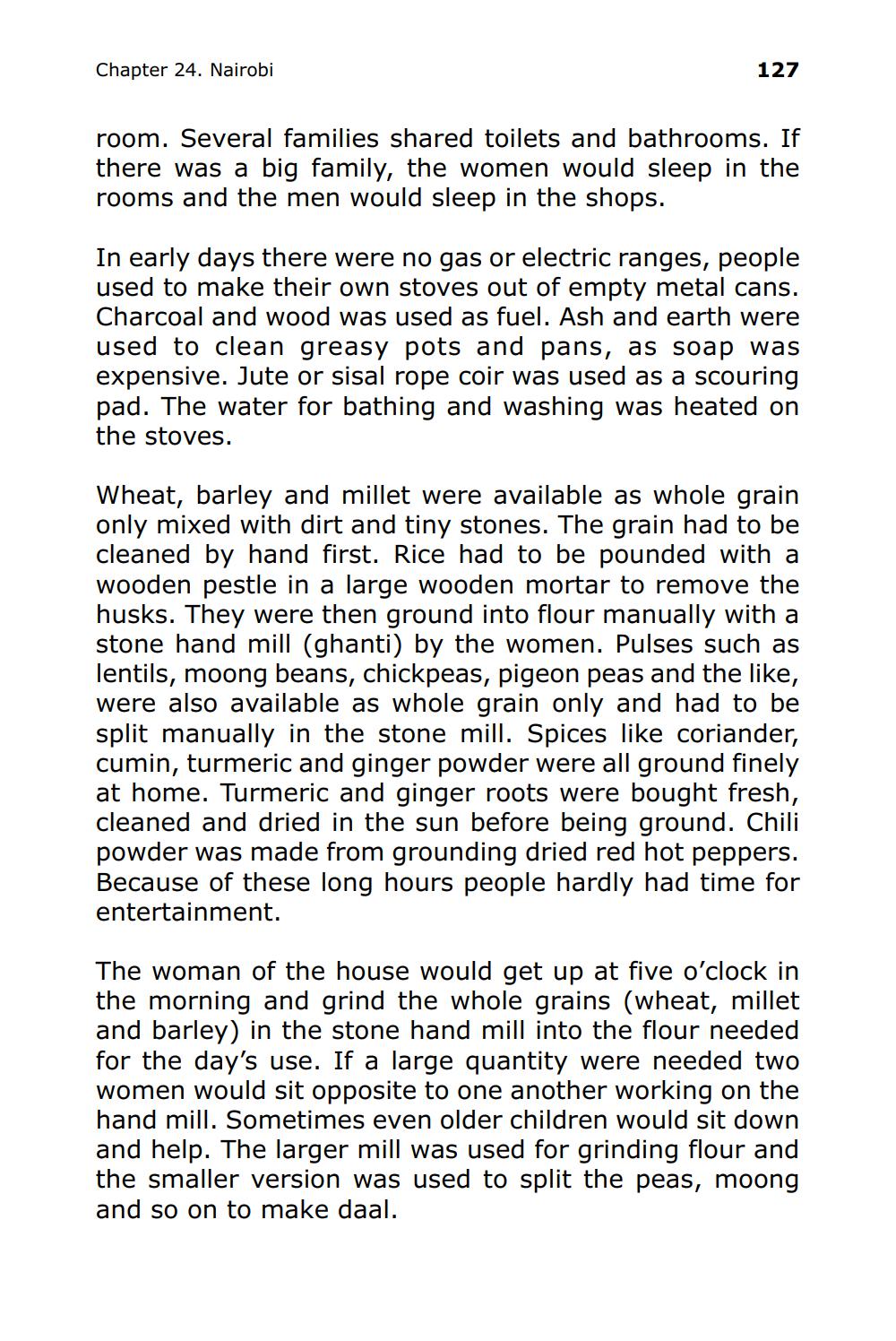________________
Chapter 24. Nairobi
127
room. Several families shared toilets and bathrooms. If there was a big family, the women would sleep in the rooms and the men would sleep in the shops.
In early days there were no gas or electric ranges, people used to make their own stoves out of empty metal cans. Charcoal and wood was used as fuel. Ash and earth were used to clean greasy pots and pans, as soap was expensive. Jute or sisal rope coir was used as a scouring pad. The water for bathing and washing was heated on the stoves.
Wheat, barley and millet were available as whole grain only mixed with dirt and tiny stones. The grain had to be cleaned by hand first. Rice had to be pounded with a wooden pestle in a large wooden mortar to remove the husks. They were then ground into flour manually with a stone hand mill (ghanti) by the women. Pulses such as lentils, moong beans, chickpeas, pigeon peas and the like, were also available as whole grain only and had to be split manually in the stone mill. Spices like coriander, cumin, turmeric and ginger powder were all ground finely at home. Turmeric and ginger roots were bought fresh, cleaned and dried in the sun before being ground. Chili powder was made from grounding dried red hot peppers. Because of these long hours people hardly had time for entertainment.
The woman of the house would get up at five o'clock in the morning and grind the whole grains (wheat, millet and barley) in the stone hand mill into the flour needed for the day's use. If a large quantity were needed two women would sit opposite to one another working on the hand mill. Sometimes even older children would sit down and help. The larger mill was used for grinding flour and the smaller version was used to split the peas, moong and so on to make daal.




